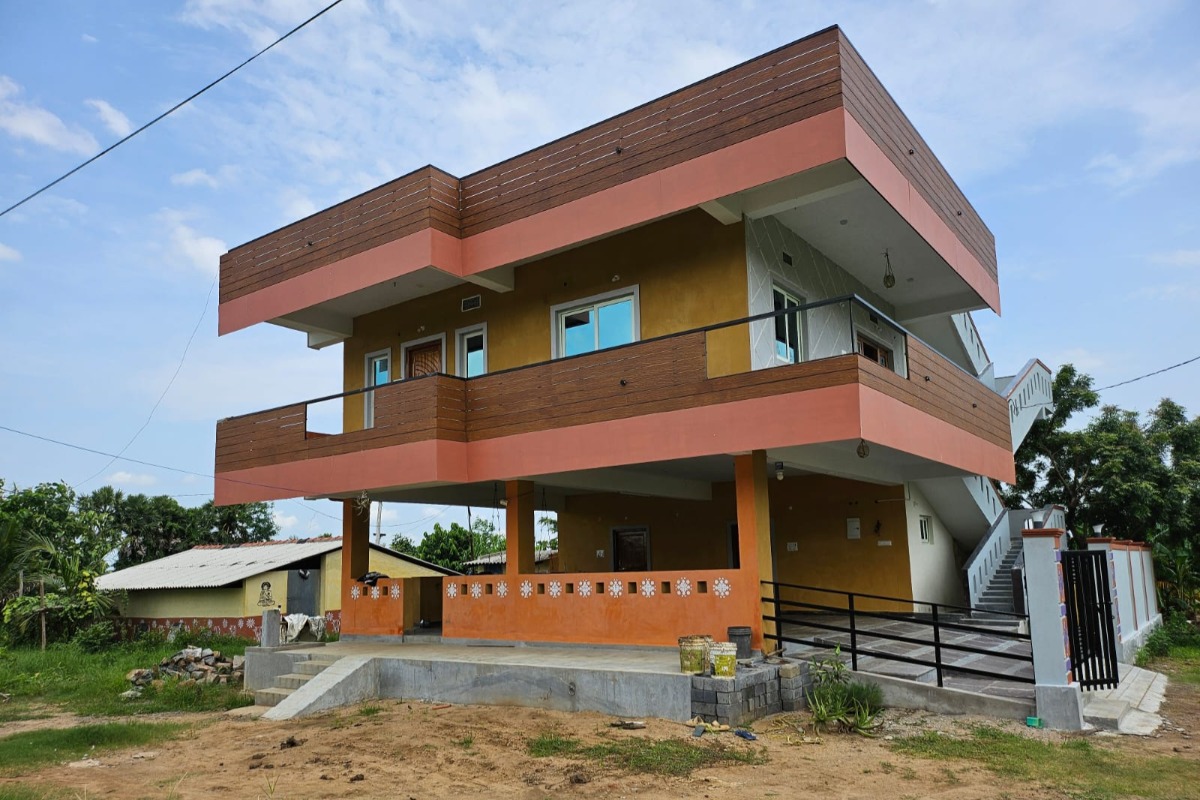

The Solutions Explorer lets you create alerts that match your needs. You can create several alerts and you will receive a notification each time a new Solar Impulse Efficient Solutions is labelled and matches your filters.
Your Search Alerts will show up here.
Sign in to create alerts for your filters and search terms.
Sign inDon't have an account?
Sign upAccess exclusive opportunities for Investor Members Only
The Investment Hub is a platform by the Solar Impulse Foundation that connects innovators with investors to fund scalable and sustainable solutions. Through tailored matchmaking, e-pitches, and a collaborative digital environment, it helps drive impactful innovation forward.
Sign in to explore a world of dynamic and high-potential investment opportunities.
Sign inDon't have an account?
Sign upJuly 30, 2024
Mr. Rishi
Gudivada

Mr. Rishi, a Visakhapatnam-based sustainability champion, selected Agrocrete® blocks for his 2,000 sq. ft. individual residence, recognizing their unmatched climate impact. This choice transformed his residence into a peaceful and tranquil haven, completely eliminating the need for air conditioning. The construction team praised the ease of use and seamless compatibility of Agrocrete® with conventional building practices.
The project used 1,100 Agrocrete® blocks, capturing 2.1 tonnes of CO2. These blocks replaced 11,000 traditional bricks, and their superior thermal insulation eliminated the need for air conditioning. The total cost for the Agrocrete block work was ₹1,00,000, significantly lower than the ₹1,80,000 - ₹1,90,000 required for conventional burnt clay bricks. This cost savings stemmed from an 80% reduction in cement and sand needed for the mortar to join the blocks together.
Agrocrete® is an innovative building material that stands out as the world's first verified carbon-negative bio-concrete, crafted from agricultural residues and industrial by-products. This eco-friendly alternative to conventional concrete not only reduces carbon emissions but also provides enhanced thermal insulation and durability, being 40% lighter and twice as thermally insulating as traditional options. By utilizing a patented alkali-activated slag-based binder, Agrocrete® effectively mineralizes biogenic carbon, achieving permanent carbon sequestration while supporting a circular economy by upcycling waste materials. Its production process is energy-efficient, relying on low-voltage electricity without harmful emissions, making it a sustainable choice for construction that can significantly lower costs and environmental impact while generating additional income for farmers involved in the supply chain.
Share
The information set out above, is solely for the purposes of information and the Solar Impulse Foundation does not provide any guarantee as to its authenticity, completeness or accuracy. This information does not constitute investment advice or a recommendation to buy into, transact or to enter into any agreement with any of the parties or persons mentioned above. Potential investors or interested parties are solely responsible for their investment or business decisions and for performing any due diligence required by the circumstances. The innovator has asserted ownership of the intellectual property rights for images, videos, and content showcased above, affirming full and unrestricted usage rights, and has provided explicit permission for the Solar Impulse Foundation to publish such information designated as "public" in the application form.